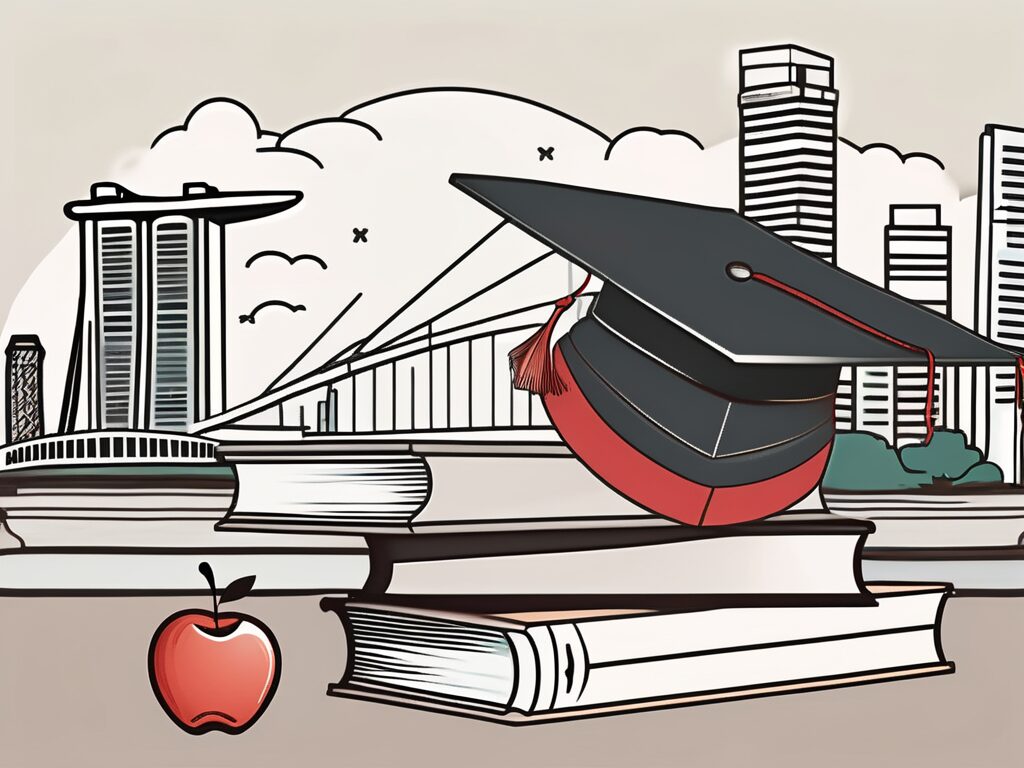Singapore’s education system is globally recognised for its high standards and rigorous curriculum. However, the success of this system is not solely down to the teachers and the schools. Parents play a crucial role in their children’s educational journey, and their involvement can significantly impact the child’s academic performance and overall development. For parents with a Master’s in Education, this involvement can be even more beneficial, as they possess a deeper understanding of educational theories and practices. Here are five tips to help you make the most of your expertise and positively influence your child’s education.
1. Utilise Your Knowledge in Educational Theories
Your Master’s in Education has equipped you with a wealth of knowledge about how children learn best. You understand the importance of different learning styles, the role of motivation in learning, and the impact of various teaching strategies. Use this knowledge to support your child’s learning at home. For example, if your child is a visual learner, help them create colourful mind maps or diagrams to aid their revision. If they respond well to positive reinforcement, praise their efforts and achievements regularly to keep them motivated.
Remember, every child is unique, and what works for one may not work for another. Therefore, it’s important to adapt your approach based on your child’s individual needs and preferences. Your understanding of educational theories can guide you in this process, helping you create a supportive and effective learning environment at home.
2. Foster a Love for Learning
As an education expert, you know that learning is not just about passing exams or getting good grades. It’s about developing a lifelong love for learning. Encourage your child to explore their interests and passions, whether it’s art, science, sports, or anything else. This can make learning more enjoyable for them and can also help them develop important skills such as critical thinking, creativity, and problem-solving.
For instance, if your child shows an interest in nature, you could plan family outings to parks or nature reserves. These experiences can provide practical learning opportunities that are not only educational but also fun. Similarly, if your child enjoys reading, encourage this habit by providing a variety of books and discussing them together. This can enhance their literacy skills and also foster a love for reading.
3. Communicate Effectively with Teachers
Your Master’s in Education can also be beneficial in your interactions with your child’s teachers. You understand the challenges teachers face and the educational goals they are trying to achieve. This can help you establish a positive and collaborative relationship with them, which can ultimately benefit your child’s education.
Regular communication with teachers can keep you informed about your child’s progress and any areas they may be struggling with. It can also provide you with insights into how you can support your child’s learning at home. Remember, education is a team effort, and teachers can be valuable allies in your child’s educational journey.
4. Advocate for Your Child
As a parent, you are your child’s biggest advocate. With your educational background, you are in a strong position to advocate for your child’s educational needs. If you feel that your child is not being challenged enough or is struggling with certain aspects of the curriculum, don’t hesitate to voice your concerns to the school. Your insights and suggestions can help teachers and school administrators make necessary adjustments to better support your child’s learning.
Advocating for your child also means ensuring they have access to the resources and support they need to succeed. This could involve arranging for additional tutoring, seeking help from a learning specialist, or even advocating for changes in school policies or practices that you believe are not in your child’s best interest.
5. Lead by Example
Last but not least, lead by example. Your actions can have a powerful influence on your child’s attitudes towards learning. Show them that you value education by engaging in lifelong learning yourself. This could involve reading books, attending workshops or seminars, or even pursuing further education.
By demonstrating a commitment to learning, you can inspire your child to do the same. This can foster a positive learning culture at home and can also help your child develop a growth mindset, which is the belief that abilities and intelligence can be developed through hard work and perseverance.
In conclusion, your Master’s in Education can be a valuable asset in supporting your child’s education in Singapore. By utilising your knowledge, fostering a love for learning, communicating effectively with teachers, advocating for your child, and leading by example, you can make a significant difference in your child’s academic journey. Remember, education is not just about academic success; it’s about nurturing well-rounded individuals who are equipped with the skills and attitudes to thrive in the 21st century.
Advance Your Teaching Career with iQTS
As a parent with a Master’s in Education, you understand the value of continuous learning and professional development. Take your expertise to the next level with The IQTS at UWE’s International Qualified Teacher Status (iQTS) Programme. Enhance your career growth with a qualification that boosts promotion rates by 45%, increases salary by 30%, and expands your professional network. Embrace the flexibility of online study options and become part of a global community of educators. Don’t let barriers hold you back. Make Your Next Step towards achieving international recognition and adapting to global education systems with iQTS.

